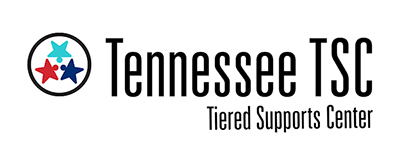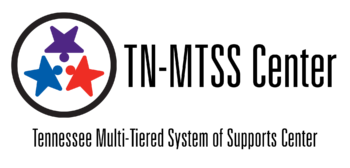What is RTI2-B?
RTI2-B stands for Response to Instruction and Intervention for Behavior. RTI2-B helps schools create a positive culture for students and staff with the goal of improving academic and behavioral outcomes for ALL students. All of these efforts require a shared commitment school-wide to teach and reinforce positive behavior. It also involves adopting an optimistic view that all students can learn appropriate behavior if sufficient and supportive opportunities to learn are provided. Furthermore, student and staff contributions to the school create a positive and proactive way to acknowledge, engage, and respect all stakeholders.
The purpose of RTI2-B is to empower educators to equip all students with the opportunity to meet high expectations regarding behavior and the support to reach every student. Also, students, families, and educators can work together to develop and contribute to a shared school vision. Tennessee Behavior Supports Project can help schools meet that goal.
What is an RTI2-B School Team?
The RTI2-B school team should consist of an administrator, external coach, team lead, representation of each grade level including special education, school staff, parents, and if appropriate, student representation. The role of this team is to organize implementation efforts of RTI2-B at the school level and keep RTI2-B at a high profile in the school.
RTI2-B School Team Roles
The RTI2-B school team roles and responsibilities should be established before implementing RTI2-B. School teams should consist of 6-8 members. Possible school team roles might include:
- Team Lead/Facilitator – schedules the meeting, reviews the purpose of the meeting, facilitates the meeting by keeping the team focused on each step, and becomes the school’s main RTI2-B contact
- Recorder – takes notes on meeting activities and decisions
- Timekeeper– monitors the amount of time available; keeps the team aware of time limits by giving “warnings” (i.e., “10 minutes left”)
- Data Specialist– compiles and reviews school-wide data
- Communicator – facilitates communication between the team and staff regarding RTI2-B and behavior issues
- Administrator– actively encourages team efforts; provides planning time, feedback, and support initiatives
- District/State External Coach– facilitates the team through the process
It is important to note the school-wide plan should include input from all stakeholders. It is not uncommon for school teams to have sub-committees that meet outside of RTI2-B school team meetings. RTI2-B school teams should solicit feedback from all faculty, staff, families and communities, and students throughout training and implementation.
Benefits of RTI2-B
- Improves school climate
- Reduces problem behaviors
- Reduces office discipline referrals, suspensions, and expulsions
- Increases time for academic instruction
- Improves student achievement
- Improves student attendance
- Increases parent, student, and staff satisfaction
- Reduces staff turnover
- Reduces bullying behaviors
(Horner et al., 2014)

